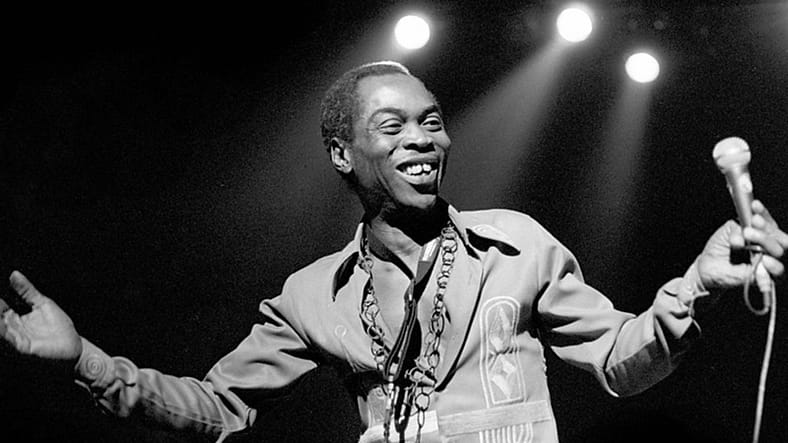Afrobeat has become more than just a genre—it’s a global movement. Originating in West Africa, this unique blend of traditional African rhythms, jazz, funk, and highlife has exploded onto the international stage. Over the past decade, Afrobeat has not only captured the hearts of music lovers worldwide but has also become a cultural force that’s reshaping how African music is perceived and celebrated.
A Brief History of Afrobeat

Afrobeat’s roots trace back to the 1960s and 70s, when Nigerian legend Fela Kuti pioneered the genre. Fela’s music was a potent mix of political activism and infectious rhythms, characterized by its complex percussion, blaring horns, and hypnotic grooves. His sound was as much about rebellion as it was about entertainment, with lyrics often addressing issues like corruption, colonialism, and social injustice in Nigeria and beyond.
Fela Kuti’s influence laid the foundation for Afrobeat, making it a voice for the voiceless and a soundtrack for resistance. His legacy continues to inspire artists today, with many contemporary musicians drawing from his revolutionary spirit and musical genius.
Afrobeat’s Global Takeover

In recent years, Afrobeat has moved beyond the borders of Africa, evolving into a global phenomenon. Artists like Burna Boy, Wizkid, and Tiwa Savage have been instrumental in bringing Afrobeat to international audiences. Burna Boy’s Grammy-winning album Twice as Tall and Wizkid’s global hit Essence featuring Tems have shown that Afrobeat is not just a regional genre but a force to be reckoned with on the world stage.
These artists have skillfully blended traditional Afrobeat with elements of pop, R&B, and hip-hop, creating a sound that resonates with listeners across different cultures. This fusion has helped Afrobeat gain traction in major markets like the United States, Europe, and the Caribbean. The genre’s infectious rhythms and relatable themes—often centered around love, resilience, and joy—make it universally appealing.
Afrobeat’s rise is also closely tied to the growth of streaming platforms like Spotify and Apple Music, which have made African music more accessible to global audiences. Social media platforms like Instagram and TikTok have further amplified the genre’s reach, with viral dance challenges and music trends spreading Afrobeat far and wide.
Cultural Impact and Representation

The global success of Afrobeat is not just about music; it’s also about cultural representation. For years, African artists struggled to break into the international music scene, often overshadowed by Western genres. However, the rise of Afrobeat has shifted this narrative, placing African music and culture front and center.
Through Afrobeat, African Artists are telling their own stories, celebrating their heritage, and showcasing the richness and diversity of the continent. This representation is powerful, particularly for the African diaspora, who see themselves and their cultures reflected in the music. It also challenges outdated stereotypes about Africa, presenting a new image of a vibrant, dynamic, and creative continent.
The influence of Afrobeat is evident in how it has inspired artists from other genres. Global superstars like Beyoncé, Drake, and Rihanna have incorporated Afrobeat elements into their music, further blurring the lines between African and Western sounds. Beyoncé’s The Lion King: The Gift album, for example, was heavily influenced by Afrobeat and featured collaborations with African artists, introducing the genre to an even broader audience.
The Future of Afrobeats

The future of Afrobeat looks incredibly promising. With more African artists gaining international recognition, the genre is likely to continue its upward trajectory. Additionally, the cross-pollination of Afrobeat with other genres will likely lead to even more innovative and exciting music.
As Afrobeat continues to dominate global charts, it’s also paving the way for other African genres like Amapiano, Afropop, and Gqom to make their mark internationally. The world is listening, and African music is ready to take center stage.
In conclusion, Afrobeat’s rise is a testament to the power of African creativity and resilience. From its roots in Fela Kuti’s revolutionary music to its current global dominance, Afrobeat has shown that African voices and stories have a place on the world stage. As the genre continues to grow and evolve, it will undoubtedly inspire a new generation of artists and music lovers, keeping the Afrobeat movement alive and thriving for years to come.


